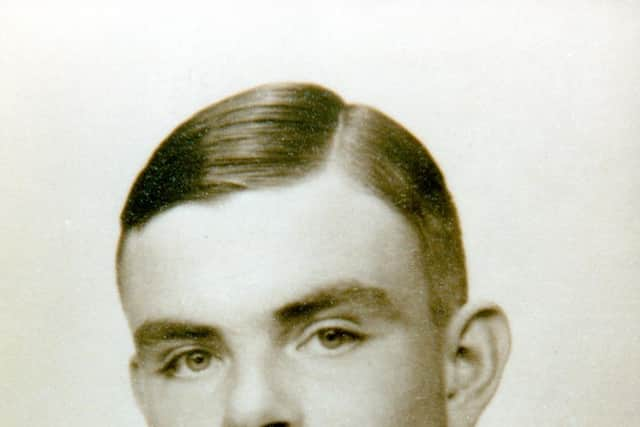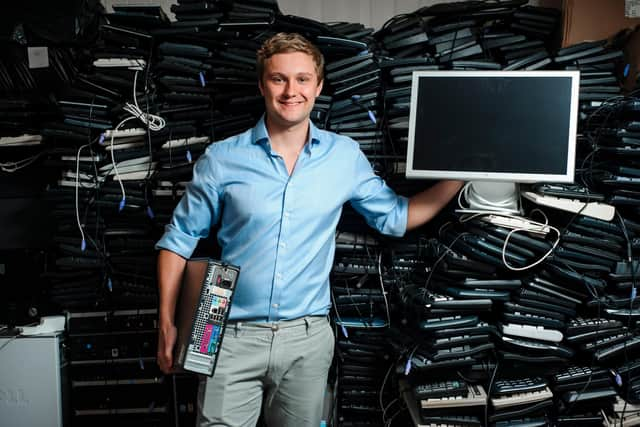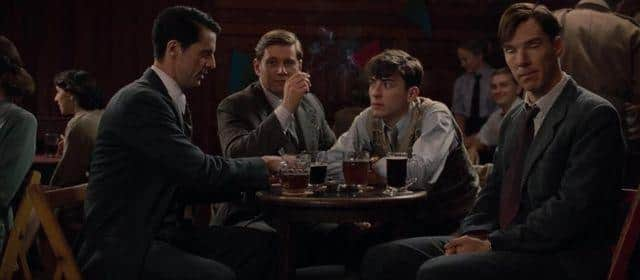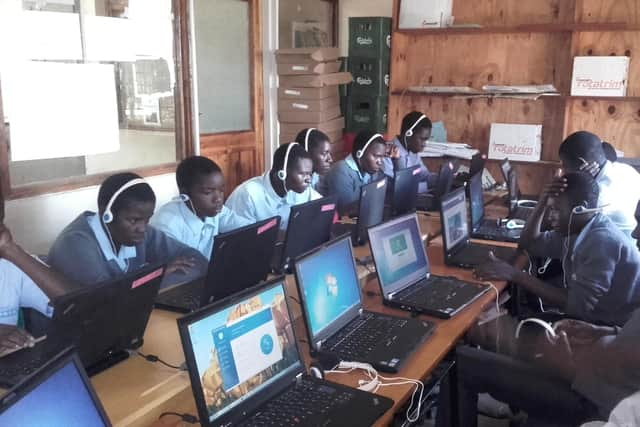Edinburgh-based family of celebrated codebreaker Alan Turing ensures their famous relative’s legacy lives on.
The Turing Trust run by Alan Turning’s nephew Dermot and his son James refurbishes old computers donated to it by businesses and the public, to give to schools in Malawi.
The charity has reused over 5,700 PCs, enabling 55,000 students across Africa to gain a digital education.
Advertisement
Hide AdAdvertisement
Hide AdIt’s celebrating receiving a £50,000 Small Charities Challenge Fund (SCCF) grant from the Foreign, Commonwealth and Development Office (FCDO) to help 6,500 Malawian schoolgirls learn how to work computers.


CEO James, 29, said: “My great uncle Alan is often known as the father of modern computer science, and we are proud to be continuing his legacy by helping some of the world’s poorest communities get access to computer technology.
“Nobody in the family since, has ever dared to go into computer science themselves, just because of the fear of turning up to class on day one and saying your name is ‘Turing’… then not knowing the answer to a question.
“Nonetheless, we thought about how we could follow Alan’s legacy in a way that we think he would have appreciated.”
Mathematician Turing is now famous for his work cracking the Germans secret Enigma code. The work of Bletchley Park codebreakers is credited with shortening World War II by two to four years – saving millions of lives.


Turing was awarded an OBE in 1946, but was chemically castrated after being prosecuted in 1952 for homosexuality and committed suicide in 1954, aged just 41.
He was granted a posthumous Royal pardon in 2013 and was portrayed by Benedict Cumberbatch in 2014’s The Imitation Game.
James said: “I’m in the film in one of the bar scenes for about one tenth of a second if you look really closely. So far, my mum and my grandmother are the only people to spot me without me pointing it out.
Advertisement
Hide AdAdvertisement
Hide Ad“For years, my great-uncle’s achievements were just something we talked about around the dinner table. It was only about five years prior to The Imitation Game coming out that he suddenly became a nationally recognised figure and I no longer had to spell my name out in full each time.


“I spotted the need for our work during a gap year trip to Ghana in 2009 before I started university.
“We now send approximately 1,600 computers a year now over to Malawi on average. The SCCF funding will really give us the tools to expand this.”
Foreign Secretary Dominic Raab said: “The UK Government’s Small Charities Challenge Fund helps smaller organisations deliver vital humanitarian and development work to the world’s most vulnerable people.
“It is wonderful to see The Turing Trust build on the outstanding legacy of Alan Turing, by enabling schools in Malawi to be part of the digital revolution - giving children computing skills that are crucial for creating jobs and prosperity in the 21st century.


“SCCF is helping The Turing Trust make a difference and I’d encourage more small charities to take advantage of this support to help the UK in its mission to be a force for good around the world.”
A message from the Editor:Thank you for reading this article. We're more reliant on your support than ever as the shift in consumer habits brought about by coronavirus impacts our advertisers.
If you haven't already, please consider supporting our trusted, fact-checked journalism by taking out a digital subscription.
Comments
Want to join the conversation? Please or to comment on this article.